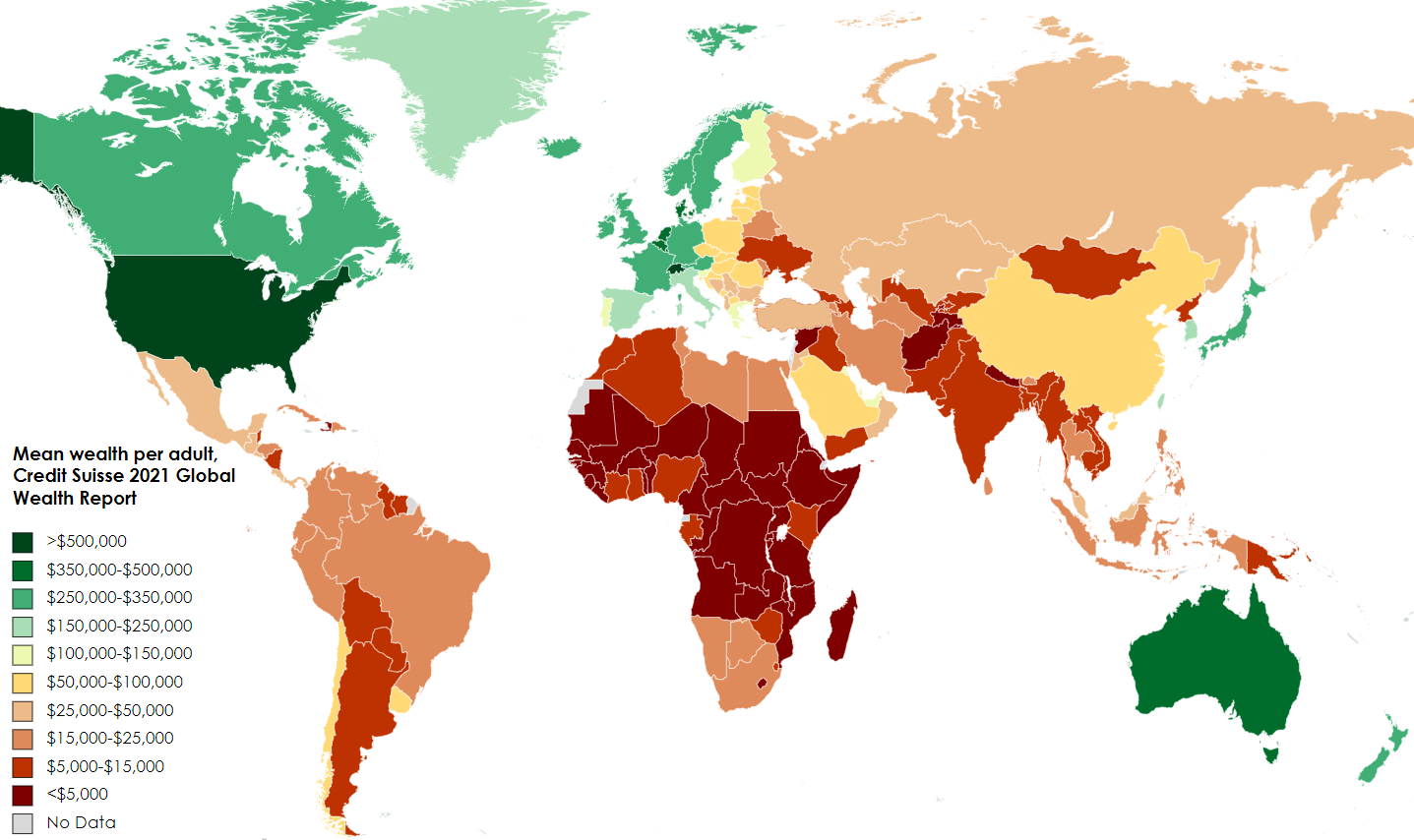Mercy Jar Challenge by Autumn
Hello there!
In this blogpost I want to share about the concept of a Mercy Jar. In many of our other blogposts we mention different ways of sparing and sharing, all of which came from this first small step.

This map shows how unevenly the wealth of the world is divided up, and how the United States is the richest country.
My family learned about the concept of a Mercy Jar through the book, You Did It To Me by Fr. Michael Gaitley. It's very simple. Whether you start a jar personally, or as a family, you basically just get a jar or container and start seeing how much you can save in it to give to others.
The twist comes in not just giving out of your surplus. It's really easy here in the United States to be content giving as opportunities come, and out of money already set aside for such purposes. But the Mercy Jar is different. It's supposed to make you uncomfortable. What do I mean by that?
Surrounded by a culture of conveniences, hobbies, and endless opportunities for amusements, we all often don't realize how much money we spend on a regular basis on things that, while at the time they seem like minor purchases, really add up overtime.
For instance, I was talking in a presentation I gave about finances at Missouri State this week and mentioned coffee as an example. In our student union we have a Starbucks that is always ridiculously crowded. Directly upstairs is the general store where you can get a large cup of flavored coffee for 25 cents. Yet the average college student spends over $1000 a year on coffee drinks.
Imagine the impact if each of us found some similar item that we spend money on to give up or decrease. That's the idea of the Mercy Jar. Every time you consciously give up one of the everyday pleasures and conveniences of our culture, you are supposed to put the money in the jar. It's amazing how fast the money adds up.
Besides the idea of giving up everyday spendings, the Mercy Jar can be expanded to other, more rare, things that we spend money on. We can try to consider how we can pay forward the money we spend on trips, outings, and activities.
For instance, there's a race coming up that I would really like to run in with some friends. But it will cost about $40 to run. I'm thinking right now about how best I can spend the same amount of money, if not more, on people who need it. I know it can be uncomfortable to think about, but, if we all seek to pay it forward when we do things for ourselves, it will truly go such a long way.
So, all in all, the Mercy Jar is a small thing that anyone can do to make a difference. Whether you start by a couple of bucks here and there from a snack abstained, or a larger sum from an activity, what matters is the intent to try to take some of the wealth we have here in the United States and working to even it out with the poor in the rest of the world. I hope that, after reading this, you might be inspired to challenge yourself with a jar of your own!
Thanks for reading,
Autumn


